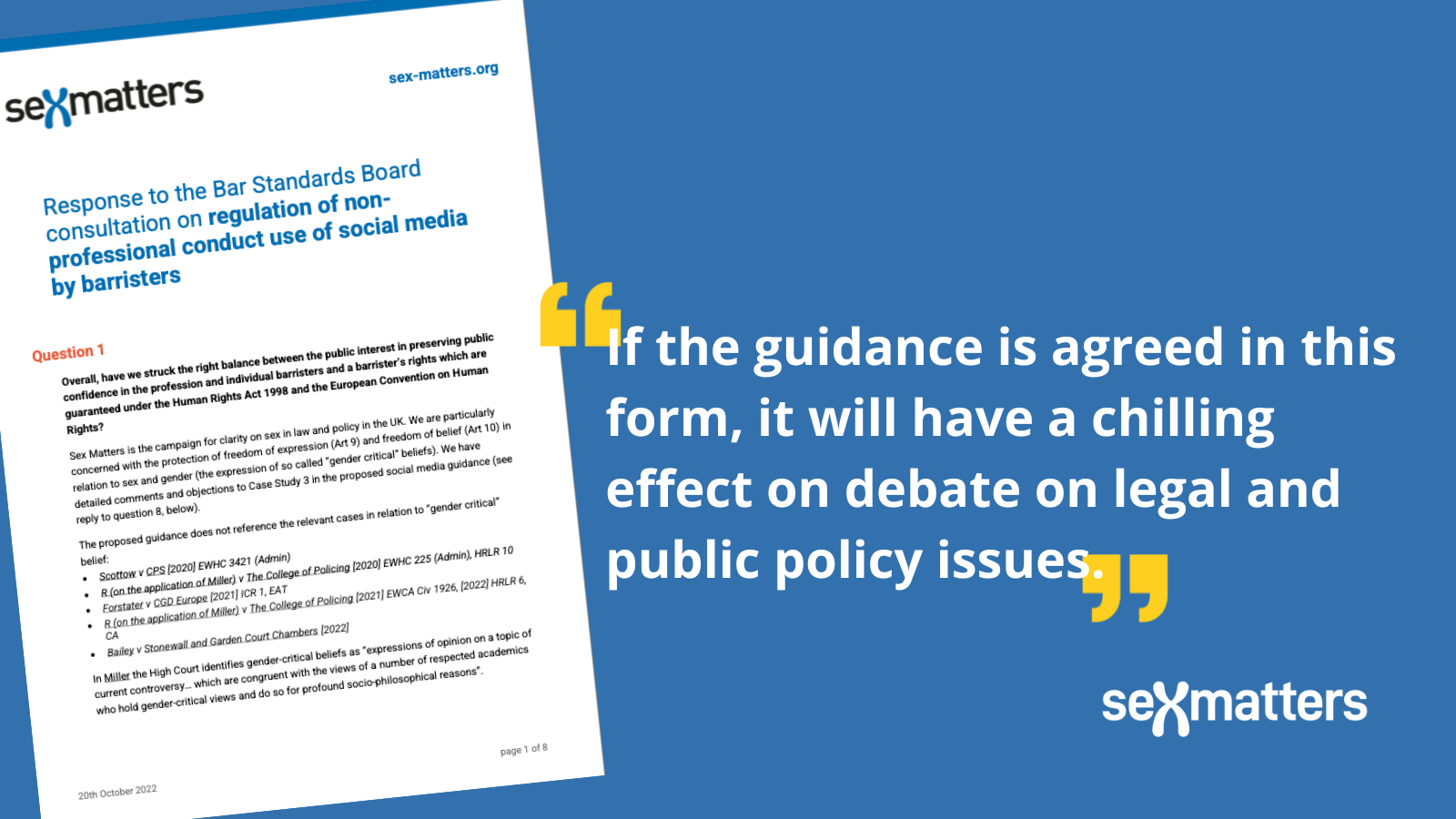New guidance for barristers curtails freedom of speech and promotes discrimination

The Bar Standards Board has been holding a public consultation on its new guidance on the regulation of non-professional conduct use of social media by barristers.
Barristers are bound by their duties “not to behave in a way which is likely to diminish the trust and confidence which the public places in you or the profession at all times.”
But the BSB’s draft social media guidance interprets this in a way that presents gender-critical speech as inherently unprofessional, offensive and discriminatory. For example, in case study 3:
“The BSB receives a report about a barrister who frequently tweets about their gender critical views using their personal Twitter account. A transgender woman (who openly states their transgender status in their Twitter profile) responded to one of the barrister’s tweets, challenging their views. The barrister then sent several tweets directed at the transgender woman, in which the barrister deliberately misgendered and threatened them.
In this case, the barrister’s conduct in specifically targeting the transgender woman, threatening, and intentionally misgendering them is likely to be considered seriously offensive and discriminatory. This conduct could diminish public trust and confidence in the barrister and/or the profession (and thus be a breach of CD5) and/or could reasonably be seen by the public to undermine the barrister’s integrity (and thus be a breach of Rule C8).”
The case of Allison Bailey v Garden Court Chambers and Stonewall [2022] highlighted how complaints against individual barristers can be used to try to silence them and prevent them expressing gender-critical ideas in public.
The BSB’s proposed new guidance would infringe on freedom of expression, and promote discrimination against people who express honest and straightforward statements about the two sexes.
This is our response, which has been submitted to the consultation:
